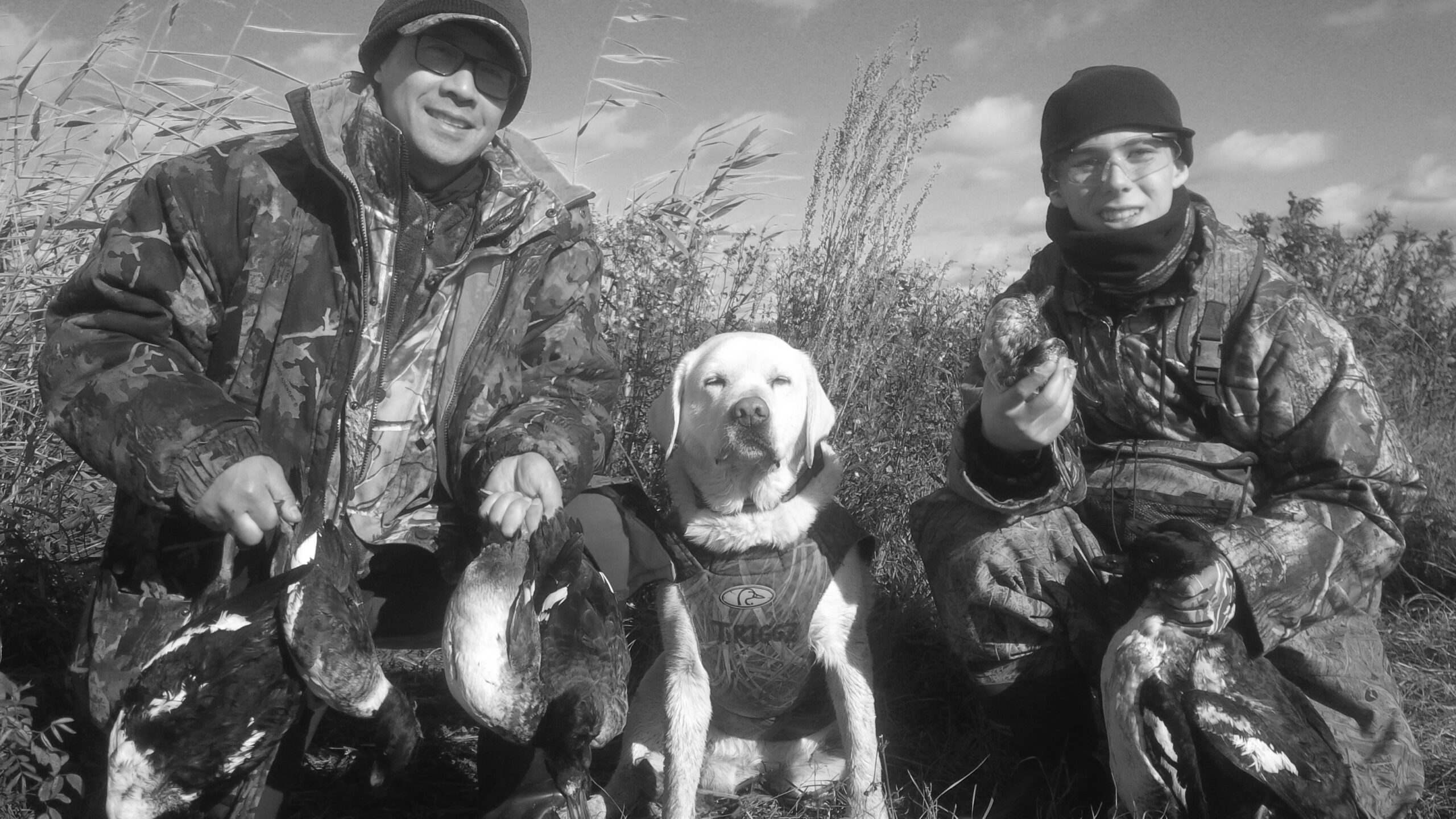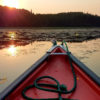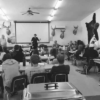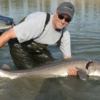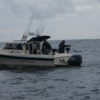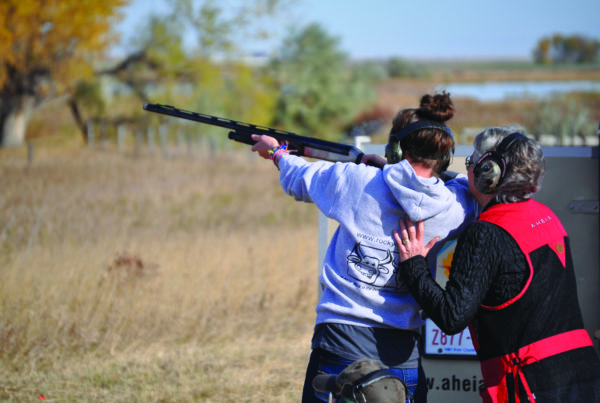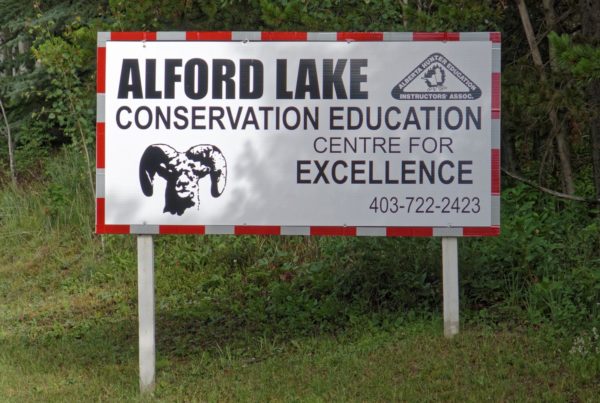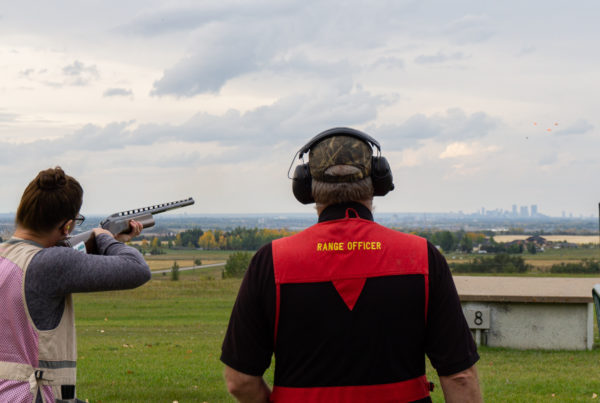This section is for information purposes only.
Once you have completed and passed your Hunter Education course, you may be wondering “What do I do next?”.
The information provided below is curtesy of Hunting for Tomorrow, an Alberta organization with the goal to foster and increase public understanding, involvement and support of hunting. (www.huntingfortomorrow.ca)
Why Hunt?
To those who do not hunt, it may be surprising that hunters are some of the greatest conservationists. Due to initiatives put in place by the hunting community, North America ha not simply been spared the extinction of many animals such as deer, elk, brown and black bears and many bird species, but has experienced valuable increases in the populations these, and many more animals.
Hunters are aware of, and very serious about, their responsibilities to nature and their fellow outdoors people. Through careful wildlife management, hunters have contributed to conservation efforts in a significantly more positive and lasting way than many non-hunters and have been key in the preservation of critical wildlife habitat. With the ever-expanding reach of man encroaching on wildlife territory, it is more important than ever that we hunt. We are traditional hunters and gatherers by nature and hunting helps us to reconnect with our heritage; by keeping the connection with the outdoors we are ensuring a strong tradition for future generations to enjoy.
There are close to $1 billion per year in hunting revenues in Alberta alone. Many S towns rely on hunting to maintain economic strength through the fall. Outfitters alone claim$100 million in revenue annually.
Hunting helps reduce depredation on feedstock by waterfowl and ungulates and contributes to the reduction of livestock deaths due to predators. Hunters also provide much information to scientists about diseases among wildlife such as Chronic Wasting Disease (CWD).
Social Impacts
In this age of technology, we need to reconnect with nature and what so than to spend time with family and friends outside. Hunting is an excellent sport that encourages exercise, focus, teamwork and offers much quiet time. Spend time establishing ties that are renewed every year. Outside of your spouse and family, your hunting partner(s) will likely be some of your closest friends!
Health Impacts
Spending time in the outdoors in any pursuit offers you fresh air, exercise, and stress reduction. Hunting is the only sport that provides both physical and nutritional benefits; it takes a lot of hard work to harvest an animal and wild game meat is a naturally low-fat source of protein. The emotional benefits of spending time in the outdoors – prevention or reduction of stress, improved self-esteem, confidence and creativity, spiritual growth, and an increased ability to tackle challenges – cannot be overstated.
What do I need to do in order to hunt?
Hunting Qualifications
The minimum age for hunting big game in Alberta with a firearm or bow and arrow is 12 years of age. The minimum age for hunting game birds is 10.
- If you are 10 to 17 years of age, before obtaining any license, you MUST: Successfully complete the Alberta Conservation and Hunter Education Course and, have the written permission of your parent or guardian to purchase a recreational hunting license.
- If you are 18 of age or older, before obtaining any license, you MUST: Successfully complete the Alberta Conservation and Hunter Education Course OR have previously held a license authorizing recreational hunting in Alberta or another jurisdiction.
Licensing
- Upon successful completion of the Alberta Conservation and Hunter Education Course one must either apply for a WIN (Wildlife Identification Card) or update their existing WIN card (which was obtained for fishing). A WIN card is obtainable through any licensed vendor or online at www.albertarelm.com.
- Opportunities exist for youth (ages 12-17) to hunt white-tailed and mule deer. They must also purchase a Resident Youth Wildlife Certificate. These licenses are valid during the seasons that do not require one of the Special Licenses obtained through a draw.
Regulations
- Obtain a copy of the current Alberta Guide to Hunting Regulations (free publication) available from license vendors, online at the My Wild Alberta website (mywildalberta.com) or at Alberta Fish and Wildlife offices, to determine what, where and when to hunt. Be aware that some licenses are only available through a special draw. To locate a license vendor near you, contact the Active Network Call Centre or visit www.albertarelm.com
- Publication guides to Outdoor Adventures are a great resource to locate new places to hunt. Alberta Discover Guide, the Alberta Conservation Association’s free publication, will assist you in finding many opportunities to discover Alberta’s wild side, including hundreds of properties that you may hunt on.
- If you are between the ages of 10 and 17 and you have received your Hunter Education Certification, simply fill out the information on the WIN Card Reimbursement certificate form and return it to the Alberta Conservation Association. Keep in mind that this is a reimbursement for the purchase of your WIN card, so you must purchase your WIN card first before applying for the reimbursement.
- If you hunt with a firearm, certain Federal legislation may apply. For more information, contact the Canadian Firearms Centre.
- Land access is an important issue to all hunters – ensure that you have proper legal access and permission prior to hunting. For more information, visit the My Wild Alberta website, mywildalberta.com.
Mentorship
- As a new hunter, you can benefit by asking an experienced hunter for their assistance. There are various Youth and First Time Hunter Mentorship Programs available. Contact us at www.aheia.comto le
Final Thoughts
Welcome to the Hunting Fraternity! You are now part of a culture, a heritage, and a long-standing tradition, of making wildlife and wild places part of people’s value systems. You have taken a large step towards becoming an important part of conservation and environmental stewardship.
You now have a responsibility, not only to yourself and others, but to the wildlife that you pursue and to the lands they live on. You owe it to yourself and to the hunting fraternity to be careful and, at the same time, to be respectful of others who enjoy this tremendous resource. We owe it to the wildlife that we pursue to make every effort to harvest as quickly and as humanely as possible. We owe it to the environment to ensure that the natural treasures that we all enjoy are protected and preserved for the next generation. The culture of the hunt, the tradition, and the heritage of the pursuit of wildlife in these wild places can provide you a lifetime of pleasure and reward.
Your new Responsibilities are:
- To each other
- To your Mentor
- To preserving opportunity
- To future hunters
- To the wildlife and waterfowl
